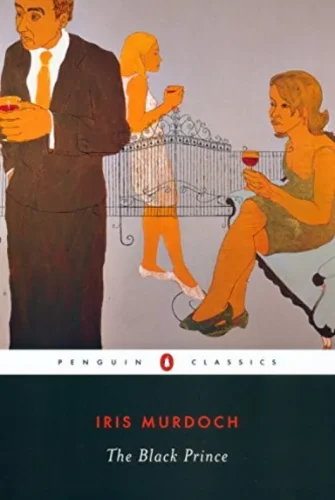Your Upcoming Self (2023) is a thought-provoking expedition into the intricate realm of decision-making, merging the influential components of psychology and economics. Providing a distinctive perspective to analyze our enduring choices, it reveals how the selections we make in the present profoundly influence our future identities.
Foreword
Uncover the secret to improved decision-making, increased determination, and a more beneficial rapport with the individual you’ll develop into.
Imagine this scenario: You’re sharing coffee with a stranger. This person is well-versed in everything about you — from your tiny routines to every choice you’ve ever made, the roads you’ve traveled, and even your innermost confidences. On the other hand, you possess no knowledge about this stranger. Who could this individual be? Well, it’s you — merely a decade down the road.
How would this encounter impact your behaviors today? Would you hesitate before indulging in that additional slice of cake, understanding the consequences it could have on your future well-being? Would you rethink that impulsive purchase, realizing the financial burden it might impose on your future self?
Our lives are an unending evolution, each day thrusting us towards the future — a future inhabited by a version of ourselves that can seem foreign and disconnected from our current selves. This split often leads to decisions that may satisfy our present persona but leave our forthcoming selves in dismay. Nonetheless, we persist, guided by a deep-seated focus on immediate gratification, frequently overlooking the looming shadows of what lies ahead.
But what if we could bridge this temporal abyss? What if we could foster an empathetic connection with our future selves, contouring our choices today to guarantee a more thriving tomorrow? In this synopsis, you will embark on a riveting voyage into the depths of self-awareness, individuality, and the engaging interplay between our present and future identities. This expedition will provide insights into the human mind, while enabling you to leverage the bond with your future self — thereby encouraging decisions that benefit not only the current you but also the you of the future.

Is it possible to metamorphose our fundamental selves?
Ponder the tale of Pedro Rodrigues Filho, a man born into violence, carrying a fractured skull from his father’s assaults. Rodrigues Filho, who passed away in 2023, was a serial murderer responsible for the deaths of 71 individuals by 1985. Yet his narrative did not culminate in a prison cell. He adopted a regimen of physical fitness, acquired literacy, and in 2007, due to a legal technicality, exited prison as a free man. He commenced rising at 4 a.m. daily, avoided substance abuse, shared uplifting stories on YouTube, and mentored young delinquents, asserting that he detested his former self and believed himself to be reborn. This prompts us to question: Can we fundamentally alter our essence?
Contemplate your self-perception. Envision a scenario where every cell in your body was substituted over time, yet your memories remained intact. Would you still retain your essence? What if your consciousness and recollections were replaced by those of someone else? How much of yourself must change before you are regarded as a novel entity?
Philosophy by itself cannot unravel this enigma. Real-world experiences, as evidenced by a study by Professor Nina Strohminger, offer an alternative perspective. She inquired with caretakers of individuals afflicted by Alzheimer’s disease and ALS about whether the individuals they tended to still felt recognizable to them. Fascinatingly, despite their failing bodies, the ALS patients, with their sound minds, were perceived as more individualistic than the Alzheimer’s patients, whose memories were fading. However, the true revelation occurred when Strohminger conversed with caregivers of individuals with frontotemporal dementia, a condition that maintains physical health and memories but hampers the capacity for moral or ethical behavior. These patients were seen as the most alien, implying that our ethical essence could indeed define our genuine identity.
Therefore, considering Pedro Rodrigues Filho, did he genuinely transform into a different person? If we consider the notion of a core moral self, perhaps he did. Yet, let’s now redirect that scrutiny towards ourselves. How do we envision our future selves? Will we remain unaltered or evolve into something new? As we probe deeper, we will investigate this captivating facet of our human existence.
Cultivating a bond with your forthcoming self
Fathom immortality — eternally youthful and unrestrained, akin to a vampire reveling in the moonlight. Intriguing, isn’t it? Nevertheless, it raises an existential dilemma. How can we be certain of our identity amidst such perpetual existence? Much like welcoming a new life into the world, each moment births a fresh version of “us.” Our future selves, consequently, will persist as enigmatic, shadowy entities in the indistinct landscape of the future.
Our perception of our future selves profoundly shapes our current choices. Envision two personas — an extension of your present self and a novel individual. How you perceive your future self within this dichotomy will inevitably influence your actions today.
Contemplate this — we often act in our self-interest. Nonetheless, if we regard our future selves as strangers, we might be less inclined to adopt healthy, constructive habits. Why decline that additional portion of dessert if it won’t affect your physique but that of a stranger? This detachment might also foster extravagant spending or a propensity towards prolonged indebtedness.
Upon contemplating the near future — for instance, your upcoming birthday — most individuals are likely to employ first-person pronouns, maintaining a sense of personal continuity. However, when the event is 30 years away, the language transitions to the third person. This switch can be attributed to perception. Imagine observing two distant birds. Differentiating between them could pose a challenge. Analogously, whether it’s “you” a decade from now or “you” in two decades, these future selves might appear to blend into a singular nebulous figure.
Our forthcoming self is nebulous, nearly spectral, whereas our present self is substantial, palpable. Though our future self isn’t literally someone else, adopting this mindset can offer enlightenment. Sacrifices for an unknown individual might seem irrational, but what if you began to perceive your future self as a companion or cherished one?
Maybe it’s time to alter perspectives. Rather than treating your future self as a distant entity, draw them nearer. Regard them as an advocate, a confidant, someone deserving of sacrifices. Perhaps then, the “you” of tomorrow would appear less like a stranger and more akin to a beloved individual for whom you would easily forego that extra serving of dessert or reconsider impetuous financial decisions. After all, even if you could exist endlessly, akin to a vampire in the twilight, wouldn’t you desire the best for all your future selves?
Navigating selections for your forthcoming self
Envision the analogy of a vessel, firmly anchored to a specific location. Despite the beckoning horizon and the allure of the open sea, it remains fastened to its berth. In a manner, we all resemble that vessel. We’re bound by the notion of “anchoring” to our current selves and principles, even when we know we should loosen the chains.and set sail towards the days ahead.
This symbolic mooring frequently prompts us to make selections that prove harmful to our forthcoming selves. When presented with the option of receiving $1000 in half a year or $990 immediately, the majority would opt for the instant payout. Yet, at what point does the scale tip? What sum of money would justify the wait?
This inclination to favor immediate rewards over future advantages can result in problematic choices, such as newfound millionaires frittering away their wealth. Nonetheless, this scenario shifts when the immediacy of the present is removed. Given the choice between $900 in one year or $1000 in a year and a half, most individuals exhibit more patience and opt for the larger amount.
The Prolongation of Decisions and the Odyssey to No Remorses
There’s optimism to be found! A smidgen of forgiveness can yield extensive benefits. Pardon your past self for leaving tasks unfinished and strive to cultivate a better comprehension of your future self to evade procrastination. In doing so, not only will you lighten the load on your future self, but you’ll also nurture a stronger bond among your past,temporal boundaries, concrete obligations, instant repercussions for undesired behaviors, and amplifying the enjoyment of tasks can bridge the divide, fostering a more robust connection with your forthcoming self. By doing so, you can stimulate decisions that foster a more enriching future.
Evaluation
“Your Future Self: How to Make Tomorrow Better Today” by Hal Hershfield is a captivating guide that delves into the notion of future identities and offers actionable methodologies to link our present and forthcoming identities. Hershfield, a respected psychiatrist and authority in the domain of decision-making and temporal outlook, delivers valuable perceptions and pragmatic counsel on how to make choices today that synchronize with our enduring objectives and aspirations.
One of the book’s virtues lies in Hershfield’s proficiency in distilling intricate psychological notions into reachable and practical recommendations. He introduces the idea of “subsequent identity” and elucidates how our insight of our impending identities can sway our decision-making processes. By aiding readers in fostering a profound connection and compassion with their future selves, Hershfield stimulates them to make preferences that prioritize long-range well-being over momentary satisfaction.
Throughout the book, Hershfield equips readers with a variety of approaches and stratagems to bridge the void between their current and future selves. He underscores the significance of formulating lucid ambitions, crafting execution intents, and developing practices that boost our desired future outcomes. The writer also tackles frequent psychological obstructions, like postponement and temptation, and proffers tactics to surmount them effectively.
Whether you are pursuing personal growth or aiming to institute positive changes in your life, this book is a prized resource that will galvanize and empower you to evolve into the finest rendition of yourself.


